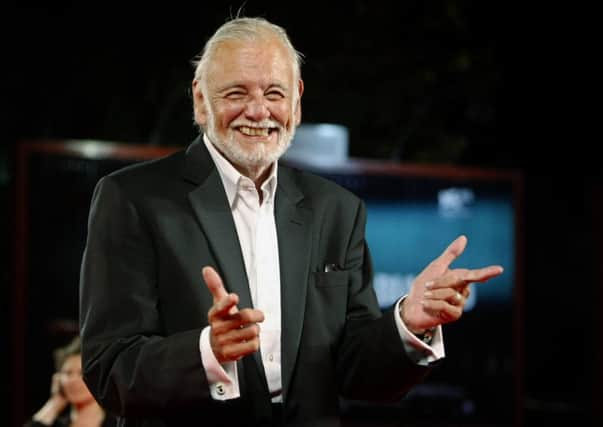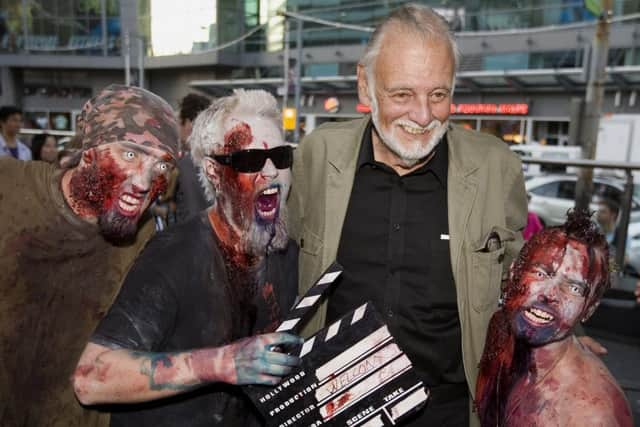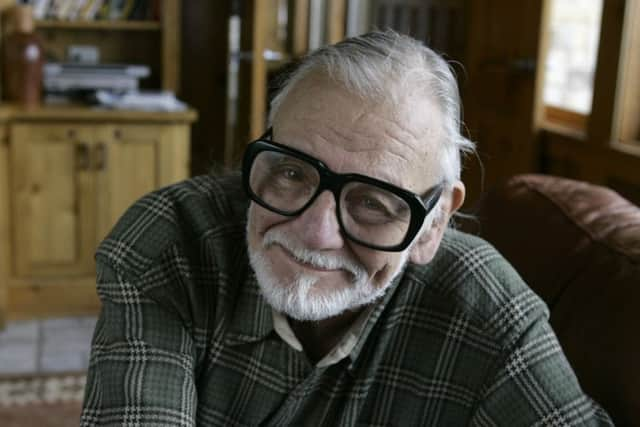George Romero, Night of the Living Dead director, dies at 77


Romero died on Sunday following a battle with lung cancer, said his family in a statement provided by his manager Chris Roe.
Romero’s family said he died while listening to the score of The Quiet Man, one of his favourite films, with his wife, Suzanne Desrocher, and daughter, Tina Romero, by this side.
Advertisement
Hide AdAdvertisement
Hide AdRomero is credited with reinventing the movie zombie with his directorial debut, the 1968 cult classic Night Of The Living Dead.


Romero’s zombies, however, were always more than mere cannibals. They were metaphors for conformity, racism, mall culture, militarism, class differences and other social ills.
“The zombies, they could be anything,” Romero Ssaid in 2008. “They could be an avalanche, they could be a hurricane. It’s a disaster out there. The stories are about how people fail to respond in the proper way. They fail to address it. They keep trying to stick where they are, instead of recognising maybe this is too big for us to try to maintain. That’s the part of it that I’ve always enjoyed.”
Night Of The Living Dead, made for about $100,000, featured flesh-hungry ghouls trying to feast on humans holed up in a Pennsylvania house.
Romero’s death was immediately felt across a wide spectrum of horror fans and filmmakers.


Stephen King called him his favourite collaborator and said: “There will never be another like you.”
Guillermo del Toro said: “The loss is so enormous.”
Many considered Night Of tThe Living Dead to be a critique on racism in America. The sole black character survives the zombies, but he is fatally shot by rescuers.
Advertisement
Hide AdAdvertisement
Hide AdTen years after Night Of The Living Dead, Romero made Dawn Of The Dead, where human survivors take refuge from the undead in a shopping centre and then turn on each other as the zombies stumble around the complex.


Film critic Roger Ebert called it “one of the best horror films ever made - and, as an inescapable result, one of the most horrifying. It is gruesome, sickening, disgusting, violent, brutal and appalling. It is also... brilliantly crafted, funny, droll, and savagely merciless in its satiric view of the American consumer society.”
The third in the Romero’s zombie series, 1985’s Day Of The Dead, was a critical and commercial failure. There would not be another “Dead” film for two decades.
There were other movies interspersed with the Dead films, including The Crazies (1973), Martin (1977), Creepshow (1982), Monkey Shines (1988) and The Dark Half (1993). There also was 1981’s Knightriders, Romero’s take on the Arthurian legend featuring motorcycling jousters. Some were moderately successful, others box-office flops.
George Andrew Romero was born on February 4 1940, in New York City. He grew up in the Bronx, and he was a fan of horror comics and movies in the pre-VCR era.


“I grew up at the Loews American in the Bronx,” he wrote in an issue of the British Film Institute’s Sight and Sound magazine in 2002.
His favourite film was Michael Powell and Emeric Pressburger’s The Tales of Hoffman, based on Jacques Offenbach’s opera. It was, he once wrote, the one movie that made me want to make movies.
Advertisement
Hide AdAdvertisement
Hide AdHe spoke fondly of travelling to Manhattan to rent a 16mm version of the film from a distribution house. When the film was unavailable, Romero said, it was because another “kid” had rented it - Martin Scorsese.
Romero graduated from Carnegie Mellon University in Pittsburgh in 1960. He learned the movie business working on the sets of movies and Mister Rogers’ Neighbourhood, which was shot in Pittsburgh.
The city became Romero’s home, and many of his films were set in western Pennsylvania. Dawn Of The Dead was filmed in suburban Monroeville Mall, which has since become a popular destination for his fans.
Romero struggled to get films made late in life. The last film he directed was 2009’s Survival Of the Dead, though other filmmakers continued the series with several sequels, including the recently shot Day Of The Dead.
But Romero held strong to his principles. A movie with zombies just running amok, with no social consciousness, held no appeal, he often said. “That’s not what I’m about.”